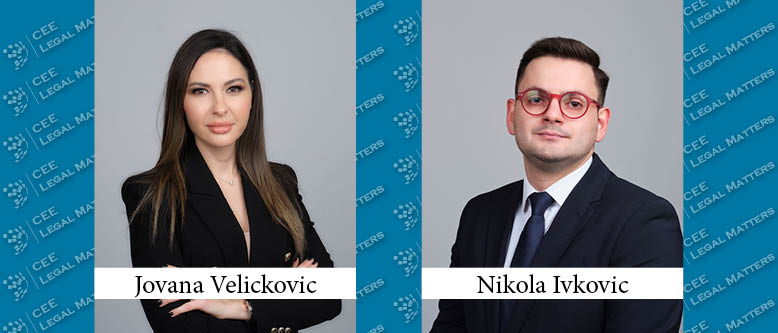In recent years, the rise of mass lawsuits has placed a significant strain on Serbian courts. The most notable mass lawsuits, which first emerged in the mid-2000s, encompass a wide range of issues, from shift and night work disputes to overcharged fees for children’s daycare and discrimination against war veterans. Recent prominent cases have involved the nullity of loan agreement provisions on application-processing costs and auxiliary school staff’s entitlement to compensation for warm meals and holiday allowances. The rise of mass lawsuits carries profound legal and economic implications, sparking renewed initiatives for class action in Serbia.
Know Your Lawyer: Mark Harrison of Harrisons
An in-depth look at Mark Harrison of Harrisons covering his career path, education, and top projects as a lawyer as well as a few insights about his as a manager at work and as a person outside the office.
The Barbenheimer Phenomenon
This year, the internet has been captivated by a sensation known as “Barbenheimer,” a phenomenon that emerged just before the blockbuster film releases of “Barbie” and “Oppenheimer.” Having previously explored the Barbie intellectual property (IP) landscape, it’s astonishing to find yet another connection between these two cinematic sensations that stand at opposite ends of the IP spectrum.
Amendments to the Law on Planning and Construction – Abolishment of Paid Conversion, Focus on Energy Efficiency and Green Construction
Amendments and supplements to the Law on Planning and Construction (“Law”) were published in the Official Gazette no. 62/2023 from 27 July 2023 and entered into force on 4 August 2023, whereas certain provisions of the Law will enter into force in 2024 and 2026, respectively.
Clifford Chance Advises on Refinancing and Recapitalization of KKCG Group's Technology Pillar
Clifford Chance has advised KKCG Group's Technology pillar on the complete refinancing of its existing bank indebtedness and the further recapitalization of its members, including those in Bulgaria, North Macedonia, Poland, and Serbia.
Tax Incentives on Reimbursement of Engaged Individuals
The Republic of Serbia applies different taxes to reimbursement payable to engaged individuals depending on their engagement type. Those engaged via employment agreement, are subject to salary tax and those engaged via service agreement are subject to tax on other income. Those engaged via temporary and periodical employment agreements are subject to either salary tax or tax on other income while those engaged on the basis of supplementary work are only subject to tax on other income.
JPM & Partners Advises on Big Bang Acquisition of BC Group
JPM & Partners has advised Slovenia's Big Bang on its acquisition of Serbian online retailer BC Group. The Andric Law Office reportedly advised the sellers.
Amendments to the Law on Financial Support for Families with Children
On 26 July 2023, the Serbian National Assembly adopted amendments to the Law on financial support for families with children.
Digital Services Act Takes Effect on Large Platforms
August 25, 2023, marks a monumental shift as the Digital Services Act (“DSA“) takes center stage, impacting industry giants like Amazon, Google, Apple, and TikTok. With 19 platforms and search engines, each having a minimum of 45 million users, the DSA takes action to uphold data privacy, combat disinformation, and eliminate online hate speech. This dynamic legislation aims to give users, including minors, enhanced rights and control over their online presence, fostering a high level of privacy and security.
New Rulebook on the Content of the Business Entities Register and Documents Required for Registration
The new Rulebook on the Content of the Business Entities Register and Documents Required for Registration (RS Official Gazette No. 63/23) (hereinafter: "New Rulebook") has entered into force on August 5, 2023, thereby ceasing to be valid Rulebook on the Content of the Business Entities Register and Documents Required for Registration (RS Official Gazette, No. 42/2016) (hereinafter: "Previous Rulebook").
Judgment on Copyrighting Generative AI
In the ever-evolving world of technology, the boundaries of law are constantly being tested. With the most recent developments in generative AI (artificial intelligence – language and diffusion models), the boundaries of IP law are being tested to their absolute limits. A recent ruling by the United States District Court has brought to light a significant issue that could have implications everywhere in the world, across the spectrum of creative and knowledge industries.
NKO Partners Advises PGM Live on Acquisition of Remaining 50% Stake in VPK Balkan
NKO Partners has advised the Belgrade-based PGM Live TV production and distribution company on its acquisition of the remaining 50% stake in VPK Balkan from Slovenian production company VPK PRO, thus gaining full ownership of the target. Sole practitioner Nenad Davidovic advised the seller.
Seizing Opportunities in Serbia: An Interview with Petar Orlic and Branko Jankovic of NKO Partners
Petar Orlic and Branko Jankovic of NKO Partners sat down with CEE Legal Matters to talk about their unique paths to Partnership at the firm and share insights. Petar, who recently made the transition from London to Serbia in pursuit of new opportunities, shares his excitement about the vibrant and energetic business climate in the CEE region, while Branko, who rapidly ascended to the position of Partner at NKO, offers valuable tips on professional growth and the importance of staying open-minded and continuously learning.
EU’s Carbon Border Adjustment Mechanism: Key Considerations for Non-EU Producers and Importers
The European Union has initiated the world’s first carbon border tax, known as the Carbon Border Adjustment Mechanism (CBAM), in a strategic move to tackle the mounting concerns of climate change.
New Proposal of the Law on the Management of Enterprises Owned by the Republic of Serbia
On 03 August 2023, the Government of the Republic of Serbia passed on a new Proposal of the Law on the Management of Companies Owned by the Republic of Serbia (hereinafter referred to as: "Proposal").
Liberalization of Rules for Residency and Work of Foreigners in the Republic of Serbia
Amendments to the Law on Foreigners (Official Gazette of RS no. 24/2018, 31/2019 and 62/2023) and the Law on Employment of Foreigners (Official Gazette of RS no. 128/2014, 113/2017, 50/2018, 31/2019 and 62/2023) (“the Laws”) were published in the Official Gazette of the Republic of Serbia no. 62/2023 of July 27, 2023, and entered into force on August 4, 2023.
The Long-Awaited Amendments of the Law on Foreigners and Law on Employment of Foreigners
The Serbian National Assembly adopted amendments to two key laws regulating the immigration status of foreigners in the Republic of Serbia – the Law on Foreigners and the Law on Employment of Foreigners.
Leveraging Intellectual Property: Unraveling the Success Story of Barbie’s Brand Evolution
Since the release of the Barbie movie, there’s been an unmistakable global buzz. Beyond film, it has driven sales across a spectrum of Barbie merchandise, from costumes and makeup to beverages and even a rentable Barbie dreamhouse. The success of the Barbie movie, dolls, and brand hinges on Mattel’s very prudent approach to protecting their intellectual property rights.



















